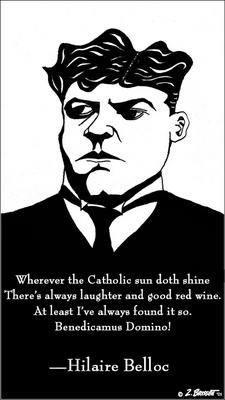
"... in a certain rather special sense I for one can really testify to a book that has made a difference to my whole existence, which helped me to see things in a certain way from the start; a vision of things which even so real a revolution as a change of religious allegiance has substantially only crowned and confirmed. Of all the stories I have read, including even all the novels of the same novelist, it remains the most real, the most realistic, in the exact sense of the phrase the most like life. It is called
The Princess and the Goblin, and is by George MacDonald ..."
This is taken from G.K. Chesterton's introduction to
George MacDonald and His Wife [Greville MacDonald. 1924]. It was reprinted in
GKC as MC and is available online at the American Chesterton Society website (
LINK).
MacDonald died September 18, 1905. So this month marks the 100th anniversary of his death. On the anniversary weekend there is a conference in Waco, TX at Baylor University:
George MacDonald and His Children
George MacDonald is seen as the founder of a literary genre: religious fantasy — which, as the 20th century has unexpectedly shown, has become a major and popular form. We welcome papers linking MacDonald and his circle (Charles Kingsley, Lewis Carroll) with his successors, including G. K. Chesterton, Rudyard Kipling, E. Nesbit, and the Oxford Inklings. Also of interest are papers connecting MacDonald with his German roots — Goethe, Schleiermacher, Novalis, and Hoffmann. In addition, we shall have a section on the development of children’s book illustration from Arthur Hughes through to H.R. Millar, which covers the great age of illustrated books before World War I.
For more details about the conference go
HERE.

